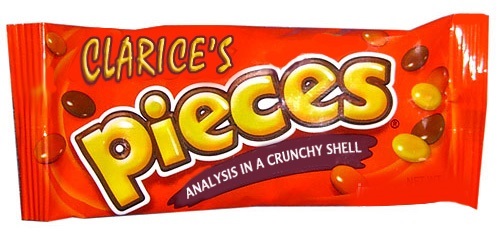

Clarice F
The conviction of Trump is as futile for the Democrats as it is dangerous for the country.Some years ago, I was trying a denaturalization case of someone who aided the Nazis. As an aside, the judge mentioned that his dad had been distraught upon hearing of the Hitler-Stalin pact because he knew it meant there would be a world war. I felt much the same upon reading of the verdict in the New York case against President Trump. There have been a number of fine analyses of the case itself, and I have chosen one which I discuss below for its clarity, but I’m concentrating today on the aftermath of this ill-conceived political hit job.
Destabilizing Effect
As the editors of the Wall Street Journal observed about a “turducken” of a case charging a former president of obscure unprecedented offenses which even if proven would constitute only a misdemeanor on which the statute of limitations had long passed:
The conviction sets a precedent of using legal cases, no matter how sketchy, to try to knock out political opponents, including former Presidents. Mr. Trump has already vowed to return the favor. If Democrats felt like cheering Thursday when the guilty verdict was read, they should think again. Mr. Bragg might have opened a new destabilizing era of American politics, and no one can say how it will end.
John Lucas contends that this judge, jury, and prosecutors “have flung this country into a downward spiral from which we may never recover,” he argues, and I agree, the verdict is the most dangerous day in our history.
The Democrats have made the rules, and their opponents will have little choice but to play the game.
This is not a game that can or will be played by one side only. The rules are now set. When Republicans have the chance, they will play the game. Many, perhaps most, will think that a response is mandatory and that “taking the high road” is no longer an option. Instead, it would be regarded by the “progressive” left — that is to say those now in charge of the Democratic party — as weakness if they roll over and fail to respond. This is an existential threat to the stability of our political system and nation. That risk makes this the most dangerous day in the history of the Country, at least in our lifetimes.
Henceforth, weaponization of the justice system against a political opponent will be the norm. Political grudges will be resolved by political opponents in cherry-picked courtrooms where conviction is most likely. All this confirms that when controlled by scoundrels, our judicial system is becoming more like what we expect in places like China, Cuba or Venezuela, where political opponents are routinely imprisoned or worse.
Weakness of the Case
Many legal practitioners have noted the major flaws in this case, and have done a fine job of it, but for clear and simple to understand descriptions, I recommend Will Chamberlain’s:
1. It’s not remotely clear that a. the records were false or b. that Trump knew anything about the attempt to falsify them. It’s not obvious how to classify an NDA [ed: Non-disclosure agreement] expense, and the idea that Trump — who was President at the time of the alleged falsification — was paying attention to how expenses were being recorded in drop-down menus on accounting software strains belief. 2. This is the first time that falsification was charged for records *that were not expected to be seen outside the organization*. Falsification is normally charged alongside fraud cases where the falsification is in service of, say, getting a bank to issue a loan it wouldn’t otherwise issue. Here there was no fraud. No one was relying on these records. There is no victim.
Surprisingly, CNN legal analyst Elie Honig, citing undeniable facts, best lays out the legal contortions underlying the conviction.
The judge donated money [snip] in plain violation of a rule prohibiting New York judges from making political donations of any kind — to a pro-Biden, anti-Trump political operation, including funds that the judge earmarked for “resisting the Republican Party and Donald Trump’s radical right-wing legacy.”[snip] District Attorney Alvin Bragg ran for office in an overwhelmingly Democratic county by touting his Trump-hunting prowess.[snip] Most importantly, the DA’s charges against Trump push the outer boundaries of the law and due process.
[snip]
The charges against Trump are obscure, and nearly entirely unprecedented. In fact, no state prosecutor — in New York, or Wyoming, or anywhere — has ever charged federal election laws as a direct or predicate state crime, against anyone, for anything. None. Ever.
Standing alone, falsification charges would have been mere misdemeanors under New York law, which posed two problems for the DA. First, nobody cares about a misdemeanor, and it would be laughable to bring the first-ever charge against a former president for a trifling offense that falls within the same technical criminal classification as shoplifting… Second, the statute of limitations on a misdemeanor — two years — likely has long expired on Trump’s conduct, which dates to 2016 and 2017.
So, to inflate the charges up to the lowest-level felony (Class E, on a scale of Class A through E) — and to electroshock them back to life within the longer felony statute of limitations — the DA alleged that the falsification of business records was committed “with intent to commit another crime.” Here, according to prosecutors, the “another crime” is a New York State election-law violation, which in turn incorporates three separate “unlawful means”: federal campaign crimes, tax crimes, and falsification of still more documents. Inexcusably, the DA refused to specify what those unlawful means actually were — and the judge declined to force them to pony up — until right before closing arguments.
In these key respects, the charges against Trump aren’t just unusual. They’re bespoke, seemingly crafted individually for the former president and nobody else.
[snip]
“No man is above the law.” It’s become cliché, but it’s an important point, and it’s worth pausing to reflect on the importance of this core principle. But it’s also meaningless pablum if we unquestioningly tolerate (or worse, celebrate) deviations from ordinary process and principle to get there.
Trump’s Options
<img alt captext="Clarice F” class=”post-image-right” src=”https://conservativenewsbriefing.com/wp-content/uploads/2024/06/the-trumped-up-conviction-and-its-consequences.jpg” width=”350″>He has a fine legal staff which undoubtedly will weigh his options and select the best, but several commentators have offered suggestions. In the first case, he’s now free on bail pending appeal. He cannot file an appeal until he’s sentenced and Judge Juan Merchan has set that date for July 11, four days before the scheduled RNC convention. A look at the NY Supreme Court indicates it’s a one-party operation and gives no assurance that it will reverse the conviction.
Should Merchan sentence him to jail, he would remain free on bail until the appellate court upholds the conviction and sentence. Assuming Merchan sentences him on July 11, it’s possible the appeals court would hear the case in November around the election time. There might be some question as to whether he could vote in some states — depending on the sentence, but Florida Governor Ron DeSantis has announced as chair of the Florida Clemency Board he would grant Trump clemency to vote in his home state. The most creative suggestion is that of Mark Levin, who says Trump should preserve his right to appeal to the NY Supreme Court but simultaneously go right to the U.S. Supreme Court.
In Bush v. Gore, the United States Supreme Court interceded in the Florida Supreme Court’s deliberations because that Court was changing the Florida voting system on the fly, thereby violating the EQUAL PROTECTION rights of the Florida voters; that is, the state court was establishing new standards for resolving a presidential election.
The Manhattan trial court has done worse. It has taken up a case in which there is exclusive FEDERAL JURISDICTION (involving the Federal Election Campaign Act) despite the fact that the federal agencies with authority over enforcing federal campaign laws, the Federal Election Commission and the Southern District of New York/U.S. attorney’s office, declined to bring charges; where the judge is conflicted (his daughter is raising tens of millions of dollars on behalf of her Democrat Party clients); where collateral evidence has been abundant (and has no probative value); where the elements of the supposed federal offense were never articulated by the state or the Court; the imposition of a gag order on the defendant who is the future Republican nominee for president in the midst of the federal campaign for president; and so forth. Moreover, this state court could have easily avoided influencing and interfering with the federal presidential election merely by setting a later time for the case, if the court actually believed it somehow had merit. After all, the state waited years to bring its case.
Therefore, there is not only a federal constitutional equal protection violation, in that this state trial court has purposefully interposed itself into the federal presidential election without authority or jurisdiction but has also violated the federal constitutionally protected due process rights of the future Republican nominee for president. Furthermore, the voters are to determine the federal election outcome without the interference of a state court attempting to influence the result.
If President Trump is found guilty of any of the thirty-four charges, I would strongly encourage his attorneys to seek an emergency appeal to the U.S. Supreme Court based, at least in significant part, on Bush v. Gore.
Effect on Trump’s Reelection
Within 24 hours of the verdict, almost $53 million was donated to Trump, about a third of it reportedly from new donors. Some donations were small, some were big, Elon Musk and other very wealthy Americans threw their support to Trump, including Sequoia Founder Shaun Maguire, who donated $300,000. In a long explanation he told how he had changed his mind about Trump and why this is “one of the most important elections of my lifetime.”
The great Iowahawk (David Burge) thinks the Democrats’ idea that they can beat Trump through lawfare is absurd: “This is wishful thinking on the level of ‘hey let’s trap Godzilla with the high voltage lines’”
Benny Johnson’s crew did a fun video takeoff on the movie It’s a Wonderful Life, portraying the groundswell of donations to Trump like the townspeople pouring money in to save Jimmy Stewart and his bank.
The Daily Mail for one ran a poll revealing the conviction increased Trump’s lead over President Biden.
All in all, these lawfare schemes strike me as dangerous to the country but as self-defeating to the Democrats as any Wile E. Coyote scheme to catch the roadrunner.





